
As International Open Access Week marks its 16th year in 2023, it serves as a reminder for the global scientific community to reflect on the journey of this movement, initiated to foster and promote open sharing of knowledge.
Celebrate Open Access Week 2023 with ACS Publications
In recent years, the widespread embrace of open access and open science within the community stands as a testament to the profound impact generated by such awareness initiatives. This year's overarching theme, “Community over Commercialization,” encourages "a candid conversation about which approaches to open scholarship prioritize the best interests of the public and the academic community—and which do not."
ACS Publications remains resolutely committed to support and advance the endeavors of open science and open access publishing. In the dynamic landscape of AI and Machine Learning, the increased focus on various facets of open data and open methodologies promises to usher in a revolutionary paradigm shift. Our Open Access Microsite is a new initiative designed for the scientific community, featuring a centralized hub helps readers seamlessly search and navigate all of the open access articles from our 80+ peer-reviewed journals.
To amplify awareness within the scientific community about the multifaceted role of open access publishing, ACS Publications is hosting a series of webinars throughout this week. Registration for these events is entirely free, and recordings will be made available post-event. Learn more and register for our Open Access Week 2023 webinars.
Read Insights and Perspectives from the Scientific Community in India
Amidst the challenges of today's landscape, securing and perpetuating equity in open access stands as a pivotal issue, demanding unimpeded accessibility to research. The collective voices of the community, advocates, and champions from diverse spheres of academia and industry are poised to play an integral and indispensable role in this endeavor.
Hear perspectives of select Indian Editors, Librarians, Scientists, and Early Career Researchers as they share their thoughts on the current landscape of open access and contemplate the direction to chart for the future.
EDITORS
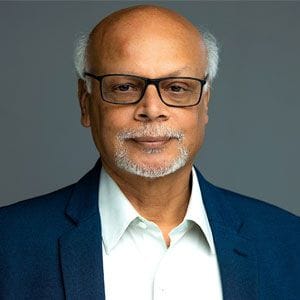
Professor Krishna N. Ganesh, FNA, FASc, FTWAS, Co-Editor-in-Chief, ACS Omega
Prof. Ganesh is one of the Co-Editors-in-Chief of ACS Omega. He is currently the SERB National Science Chair at Jawaharlal Nehru Centre for Advanced Scientific Research (JNCASR) at Bengaluru. He is the Founder Director of both IISER Pune (July 2006 – Oct 2017) and IISER Tirupati (Nov 2017-April 2023), which are two of the seven premier Institutes of national Importance in Science Education and Research established by Ministry of Education, Govt. of India. Prof. Ganesh’s research focusses on therapeutic and diagnostic applications of DNA analogues, in particular Peptide Nucleic Acids, structural biology of collagen peptides and the emerging area of DNA nanotechnology.
Prof. Ganesh is a Fellow of the three Science Academies in India and also a Fellow of The World Academy of Sciences (2006, TWAS). He served as the President of Division of Organic and Biomolecular Chemistry of IUPAC (2012-2013). For his contributions to research in nucleic acid chemistry and institution building of IISER Pune and IISER Tirupati, in Jan 2023, Indian government honoured him with the civilian award of “Padma Shri."
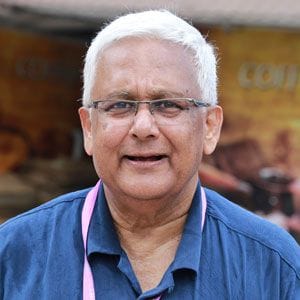
Professor Dipankar Chatterji, Associate Editor, ACS Omega
Prof. Chatterji started his career as a bio physical chemist, and after completing his post-doctoral work at Albert Einstein College of Medicine, and Stony Brook University, New York, he turned to India to work on the regulation of gene expression in prokaryotes. He started with E. coli transcription and established the role of omega subunit in maturation of the enzyme. He shifted his attention onto the survival strategies of E. coli under nutritional stress, called' stringent response' and demonstrated that RNA polymerase is the target for the stringent factor. Around 1999, he started working on stringent response as well as other stress-induced phenomena in mycobacteria. Here again, he and his group established the stringent response pathway in M. smegmatis. Recently they have worked on the role of c-di-GMPandc-di-AMP during stationary phase growth in mycobacteria. They identified another enzyme RelZ which synthesizes nucleotide pGpp, which uses GMP as a substrate with associated RnaseH activity.
Prof. Chatterji is a recipient of Shanti Swarup Bhatnagar Prize and is an elected fellow of all the major Indian science academies. The Government of India awarded him the civilian honor of the Padma Shri, in 2016, for his contributions to science and engineering.
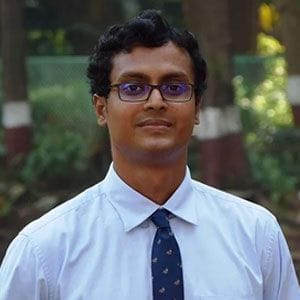
Professor Debabrata Maiti, FRSC, FASc, Associate Editor, The Journal of Organic Chemistry
Prof. Maiti received his Bachelor's degree in Chemistry from University of Calcutta in 2001 and completed Master's degree in Chemistry from Indian Institute of Technology Bombay in 2003. The same year, he joined Prof. Kenneth D. Karlin’s group in John Hopkins University for doctoral studies. His thesis title is “Oxidative reactivity of synthetic reduced copper complexes” and he defended his PhD in 2008. After a two and half year post-doctoral stint at MIT under the supervision of Prof. Stephen L. Buchwald, he joined Indian Institute of Technology Bombay where he is a professor in Department of Chemistry. He then served as a visiting faculty in University of Pavia, Italy from 2017-2019.
Prof. Maiti is an Associate Editor of The Journal of Organic Chemistry. Recently, he was awarded the Shanti Swarup Bhatnagar Prize, the prestigious Indian national award for excellence in scientific research, for Chemical Sciences in 2022.
--------------
LIBRARIANS
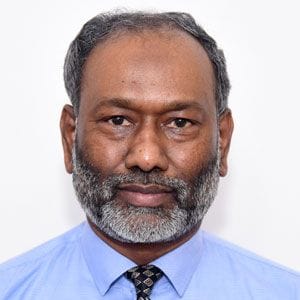
Dr. Nabi Hasan, Librarian & Head, Central Library, Indian Institute of Technology, Delhi
Dr. Hasan is the Head Librarian at the Indian Institute of Technology Delhi. Earlier, he served as the University Librarian at Aligarh Muslim University. He is the First Norman E. Borlaug Fellow from India in Library Information Systems, trained at Cornell University, New York, USA. Dr. Hasan has been honored with the Fellow of the Special Libraries Association Award 2022 (FSLA). He is the winner of the SLA Engineering Librarian of the Year Award 2021, Bonnie Hilditch International Librarian Award 2018, SLP-SLA Asian Fellow Award 2019, and has also won the Presidential Citation 2021. Dr. Hasan has been conferred with the Royal Society of Chemistry's Librarians' Choice Award 2019 and is winner of SLA Overall Best Poster Award 2020. He is the recipient of the Vice-Chancellor Appreciation Award 2003 HP Agriculture University Palampur, Appreciation from the Chairman, Board of Governors, IIT Delhi 2012, Appreciation from the Vice-Chancellor of the Aligarh Muslim University 2018, Appreciation Certificate from IEEE twice, Lifetime Achievement Award 2015, "SALIS - Dr. Harish Chandra-Sushila Chandra National Best Librarian Award' on Oct. 14, 2022.
Earlier, Dr. Hasan served as President of SLA Asia and the President of Academic & Education Community of the SLA-USA. Dr. Hasan has 16 Books and more than 170 articles to his credit. Currently, he is President-Elect 2023 of the SLA Engineering Community and served as Co-Chair of the Annual Conference Advisory Council 2022-23 (ACS). More recently, he has been awarded with the Outstanding Academic Librarian Award 2023, conferred on the occasion of National Librarians Day 2023 by the Social Development Federation, India. He headed the National Resource Centre in Library and Information Sciences of the Ministry of Education, Govt. of India, under its ARPIT MOOCs Program 2019-21.
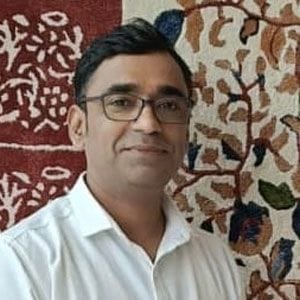
Dr. Sandeep Kumar Pathak, Librarian, Indian Institute of Science Education and Research, Bhopal
Dr. Pathak is a science graduate and has a Ph.D. in Information Science from the University of Pune. Dr. Pathak is currently working as Librarian, Indian Institute of Science Education and Research (IISER) Bhopal since October 2023. Dr. Pathak has been instrumental in setting up the state-of-the-art modern Library at IISER Bhopal. Prior to joining IISER Bhopal, Dr. Pathak worked with IIT Mandi, IIT Kharagpur, IUCAA Pune, INFLIBNET Centre Gandhinagar, and Institute for Plasma Research (IPR) Gandhinagar. He also served as mentor Librarian for IISER Berhampur and founding Librarian for IIT Mandi. Dr. Pathak has supervised a few of the Library Automation and RFID Implementation in various academic Institutions.
Dr. Pathak is the recipient of the SLA Asian Librarian Award 2014, Taylor & Francis Young Librarian Award 2014, MPLA Innovative Librarian Award 2017, MPLA Academic Librarian Award 2018, and MPLA Special Jury Award 2019. Most recently, he has received the SLA Asia Sci-Tech Librarian Award 2022. He is a National Library Advisory Board Member of five major academic publishers and serves as a member of Board of Studies of four State Universities. He is proactively working on “One Nation One Subscription” and also on Open Access Movement.
--------------
SCIENTISTS
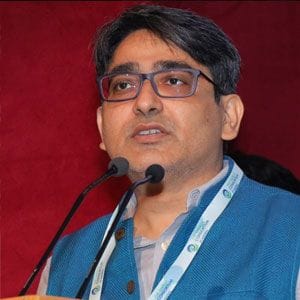
Professor Rajnish Kumar, Indian Institute of Technology, Madras
Prof. Kumar is a Professor in Chemical Engineering Department at Indian Institute of Technology, Madras. In past, Rajnish has served as a Senior Scientist at National Chemical Laboratory, Pune, India (NCL). He was also a visiting faculty in China University of Petroleum, Beijing - China and use to spend two weeks every year at the Beijing campus. Rajnish did his postdoctoral research at Steacie Institute for Molecular Sciences, National Research Council Canada. He holds a PhD degree in Chemical Engineering from The University of British Columbia, Canada. His research interests are unconventional energy, gas hydrates, carbon dioxide capture & sequestration, process development and scale-up. His research work has so far resulted in more than 100 referred publications. Prof. Kumar was recognized as a “highly cited researcher” in the field of Engineering for the year 2018.
He was awarded the Shanti Swarup Bhatnagar Prize 2022, the prestigious Indian national award for excellence in scientific research.
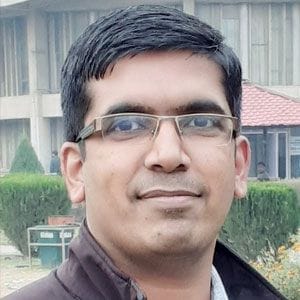
Professor Deepak B. Salunke, Panjab University, Chandigarh
Prof. Salunke completed his Master’s degree from University of Pune in Drug Chemistry and his PhD in Chemistry from CSIR-National Chemical Laboratory, Pune in the year 2008. During his PhD, he was awarded with Indo-French Sandwich Thesis Scholarship. He also has industrial experience for about three years and worked at Advinus Therapeutics as well as SAI Life Sciences. During his postdoctoral stay at NCTU Taiwan, he worked on the microwave assisted combinatorial synthesis. Dr. Salunke gained a specific experience in the field of Vaccine Adjuvant development during his stay at the University of Kansas. Currently, at Panjab University, Dr. Salunke is working towards the development of novel combinations of IDO inhibitors as well as TLR agonists to be used as Vaccine Adjuvants and Immunotherapeutics.
Dr. Salunke is a recipient of the Assistant Research Professorship at HBC University of Kansas; Ramalingaswami Fellowship of DBT India; Newton-Bhabha Fellowship; Travel Grant of NCTU Taiwan; UGC Start-up Grant; and Global Connections Fund - Bridging Grant from Australian Academy of Technology and Engineering. Dr. Salunke has completed six GiAN courses of MHRD and he is the first recipient of MHRD’s SPARC Grant at Panjab University, Chandigarh.
Dr. Salunke has recently established a National Interdisciplinary Centre of Vaccines, Immunotherapeutics and Antimicrobials at the Department of Chemistry, Panjab University, Chandigarh. At present, he is serving as an Editorial Advisory Board Member of the Journal of Medicinal Chemistry.
--------------
EARLY CAREER RESEARCHERS
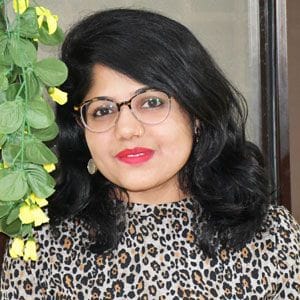
Dr. Rita Ghosh, Post Doctoral Research Fellow, Indian Institute of Science
Dr. Ghosh earned her B.Sc. and M.Sc. from The University of Burdwan, India, and her Ph.D. from Indian Institute of Technology (IIT) Kharagpur, India. She then worked as a post-doctoral research fellow at Jawaharlal Nehru Centre for Advanced Scientific Research (JNCASR), Bangalore, India. Afterward, she worked as an Assistant Professor at St. Joseph's University Bangalore, India.
Currently, Dr. Ghosh is working as an Institute of Eminence (IOE) post-doctoral fellow at Indian Institute of Science (IISc), Bangalore. Her research interest focuses on the self-assembly of small and polymeric amphiphilic molecules and their applications in drug/antibiotic delivery, liposome formulations and their delivery applications, and supramolecular chemistry.
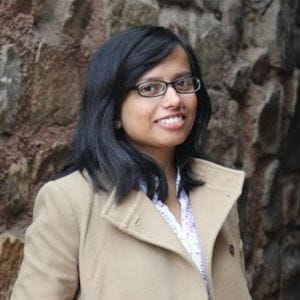
Dr. Itisha Dwivedi, Product Development Engineer, Tan90 Thermal Solutions
Dr. Dwivedi is a PhD graduate in Chemistry from IIT Bombay. Her studies focused on various applications of electric field induced processes over nanostructured materials ranging from 2D materials to hard carbon using electrochemistry and microscopy. Dr. Dwivedi is currently working as a Product Development Engineer in the Research and Development section in Tan90 Thermal Solutions Pvt Ltd, Chennai. Her role is to provide thermal management solutions by developing phase change materials which indulge in cost effective and energy efficient applications.